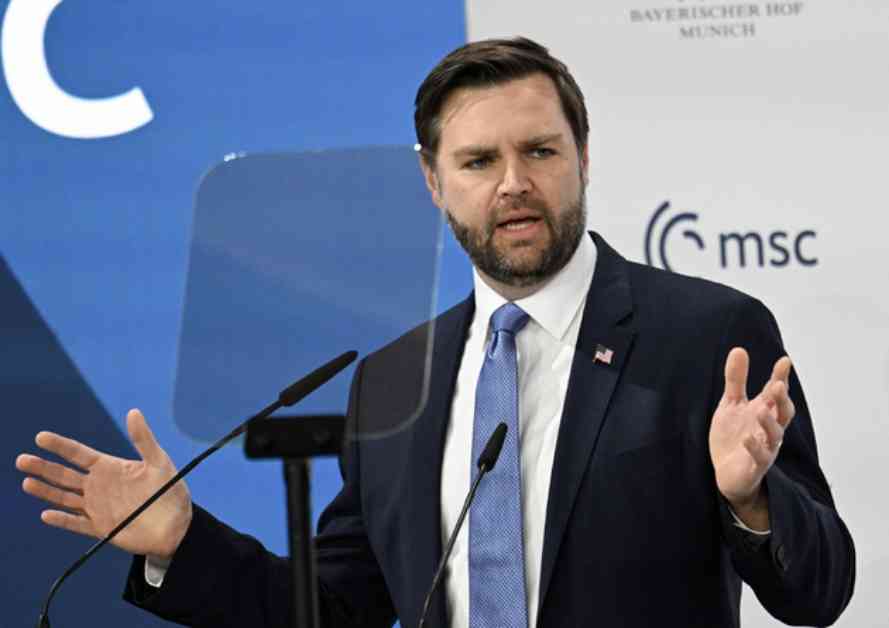U.S. Vice President Sounds Alarm on Internal Threat to Europe
During the annual Munich Security Conference, U.S. Vice President JD Vance delivered a speech that stirred controversy and criticism. In his address, Vance expressed concerns about the internal threats facing Europe, emphasizing that the biggest danger comes from within the continent itself rather than external forces like Russia and China. He highlighted issues such as the erosion of free speech, political censorship, and the marginalization of certain political viewpoints in European democracies.
Vance’s remarks struck a chord with many as he criticized the dismissal of voters’ concerns and the suppression of alternative perspectives within the political landscape. He emphasized the importance of acknowledging and addressing the legitimate grievances and aspirations of millions of citizens, cautioning that any democracy that fails to do so jeopardizes its own survival.
The vice president’s speech touched on sensitive topics such as the restriction of free speech and the reluctance of some politicians to engage with certain political factions. He raised concerns about the decline of democratic values in Europe, citing instances where elections were annulled and political dissent was met with resistance. Vance’s remarks underscored a growing unease about the state of democracy in the region and the need to uphold core principles in the face of internal challenges.
Europe’s Democratic Dilemma: A Closer Look
One of Vance’s key points was the shrinking space for free speech in European democracies. He highlighted instances where dissenting voices were silenced, and alternative viewpoints were censored, raising questions about the health of democratic discourse across the continent. The vice president’s critique of the erosion of free speech rights resonated with many who see it as a fundamental pillar of democracy.
Moreover, Vance’s comments on the reluctance of politicians to engage with certain political parties shed light on the complex dynamics within European politics. By addressing the issue of political exclusion and the marginalization of certain factions, the vice president drew attention to the need for greater inclusivity and dialogue in the democratic process. His remarks sparked debates about the role of different political actors in shaping the future of European democracy.
Reactions and Responses: A Divided Continent
In the aftermath of Vance’s speech, reactions from European leaders were mixed. While some echoed his concerns about the state of democracy in the region, others viewed his remarks as an unwarranted interference in European affairs. German Defense Minister Boris Pistorius strongly criticized Vance’s comments, labeling them as “unacceptable” and questioning the vice president’s understanding of European democracy.
The European Union’s foreign policy chief Kaja Kallas expressed reservations about the tone of Vance’s speech, suggesting that it could be interpreted as an attempt to provoke conflict with Europe. Kallas emphasized the importance of maintaining strong alliances and focusing on common challenges, such as Russia’s aggression in Ukraine, rather than engaging in divisive rhetoric.
Polish Prime Minister Donald Tusk also weighed in on the controversy, highlighting Vance’s use of a quote by the late Pope John Paul II in his closing remarks. Tusk reminded audiences of the historical context of the quote and its significance in the context of Polish resistance against Russian domination, adding another layer of complexity to the ongoing debate.
In conclusion, Vance’s speech at the Munich Security Conference shed light on the internal challenges facing Europe and sparked a broader conversation about the state of democracy in the region. While his remarks elicited strong reactions and criticism from some quarters, they also prompted reflection on the values and principles that underpin democratic societies. As Europe grapples with competing visions of its future, the debate ignited by Vance’s speech continues to reverberate across the continent.

















